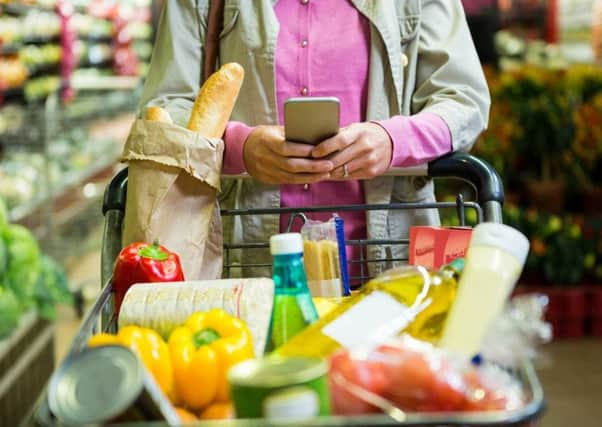Food prices to jump £45m a week as impact of '˜extreme weather' kicks in


A study found that this summer’s long period of dry, sunny weather looks set to send food prices 5 per cent higher, costing the average household £7.15 a month.
The report from consultancy group Cebr found that the extreme weather put stress on farming costs and yields, which has pushed farmgate costs higher already in some areas – but it warned that the full impact on prices could take 18 months to filter down to consumers.
Advertisement
Hide AdAdvertisement
Hide AdThe cost of some staples has already risen, with the price paid to the farmer for carrots having rocketed by 80 per cent, according to European Commission figures used by the economists.
The price of wheat to be used for bread rose by a fifth, strawberries by 28 per cent, onions by 41 per cent and lettuce by 61 per cent.
Experts said that the cost rises will hit shoppers hard, with consumer groups warning that food bank use could rise further.
The report added that dairy production had also suffered until recently, registering 11 consecutive weekly falls as the hot weather hampered grass growth, pushing up the cost of butter almost a quarter.
It said: “Summer 2018 has been one of the warmest in living memory, with above average temperatures recorded since April and dry spells lasting more than 50 days in parts of the country. While this has made Britain’s weather more conducive to barbecuing, it looks set to raise the price of the food on the grill and the drink in hand.
“The summer followed a cold, wet and challenging winter. Though coping with the vagaries of weather is something that farmers are well accustomed to, the extreme weather seen this year has put particular stress on farming costs and yields.”
The group also said that hailstorms in France have hit winemakers in Bordeaux, Champagne and Cognac, causing production problems across the Channel.
Meanwhile, the study added that the price of wheat is a particular concern due to the nation’s appetite for derived products. Much of the UK’s grain is imported from Europe, where record-breaking weather has also hit production, with the harvest expected to be 5 per cent down in 2018.
Advertisement
Hide AdAdvertisement
Hide AdCitizens Advice Scotland policy officer Ruth Mendel said: “Our evidence suggests that many Scots are already finding it difficult to afford food. A recent survey showed that over the last year 49 per cent of respondents had gone into debt to pay for food, and 23 per cent had had to go without food entirely.
“Any increase to food prices would make it even harder for those who already cannot afford to eat regularly. This is why we’ll be working on the issue of access to food in the coming months, so we can understand more about the issues affecting people who are struggling to afford food.”
Freezing weather at the start of the year was blamed for a slump in growth across the UK economy, with gross domestic product (GDP) falling to 0.2 per cent in the first quarter.
Bank of England figures for the second quarter showed the economy had rebounded, but the hot weather was blamed in part for a slip in the country’s services sector in July.
The heat has also seen pig fertility fall, pushing up the price of piglets by 8 per cent.
The Cebr said: “The price of red meat is set to fall marginally in the short run. This is as farmers look to sell livestock earlier than normal to reduce the burden on grazing land.
“Still, in the longer run, prices are set to rise as feed availability is affected by a weak harvest.”
It added: “Defra research suggests that commodity price spikes can take 18 months to fully feed through into inflation. So, while the worst of heat may have passed, the cost to consumers looks set to climb.”
Advertisement
Hide AdAdvertisement
Hide AdGraham Soult, retail consultant at CannyInsights.com, said: “As a rule of thumb, supermarkets will try to avoid passing on costs where they can, just because the UK grocery market is so competitive, and consumers these days are more than willing to shop around for the best deals. But at the same time there is clearly a limit to how far supermarkets can absorb such cost increases.”
He added: “Looking ahead, it is quite plausible that food prices will be further impacted by Brexit, too, though no-one really knows yet in what ways or by how much.”